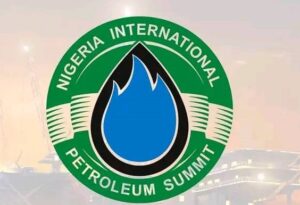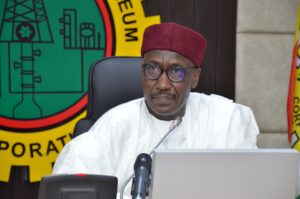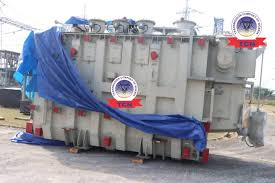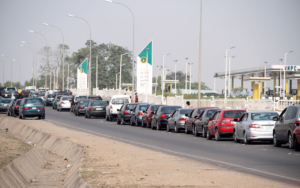Nigerian Government resumes consultations on PIA, reviews regulations on gas trading/settlement, gas flare, national strategic stocks others

Oredola Adeola
The Nigerian Midstream and Downstream Petroleum Regulatory Authority (NMDPRA) has invited licensees, permit holders, and other stakeholders in the midstream and downstream oil sector to make submissions in the development of regulations phase four(4) focusing on gas trading and settlement regulations; Hydrocarbon processing and refining facilities regulations, Midstream Gas Flare Regulations and other latest set of proposed regulations for the sector.
Mr. Farouk Ahmed Authority Chief Executive (ACE), NMDPRA, in a statement obtained by EnergyDay on Wednesday, listed the other regulations to include midstream and downstream penalties, and enforcement mechanism regulations; Midstream and Downstream Dispute Resolutions Regulations; Terminal and Bulk Storage Regulations; and National Strategic Stocks Regulations.
EnergyDay gathered that the first traditional requirement of the authority, as a regulator, in compliance with section 216(1) of the Petroleum Industry Act, 2021, is to engage with stakeholders to propose draft regulations to major stakeholders and consult and review their feedback before issuing the regulations.
Federal Ministry of Justice is later expected to gazette the regulations, after publication in the mass media, before they can be effective as regulations.
As captured in the Petroleum Industry Act 2021, the NMDPRA is required to publish the regulations and after 21 days invite the stakeholders to listen and make considerations on various regulations in its areas of operation in the oil and gas sector.
The Authority Chief Executive stated that the process was in continuation of efforts to streamline its regulations which came as a fallout of the new Petroleum Industry Act (PIA).
This is coming almost a month after the agency concluded the new rules on health and safety in the sector as well as the accuracy of measurement devices to ensure that no party is cheated.
A review of the document by EnergyDay showed that some of the objectives of the new regulations would be considering the forms of application for a license to establish(LTE), approval to construct (ATC), and license to operate (LTO)a crude oil refining facility, Natural gas processing plant, Petrochemical plants.
The objectives of these regulations are for the NMDPRA to regulate the operations of hydrocarbon refining facilities, provide for licenses, permits, authorisations, and fees for such petroleum operations, and to provide sanctions and penalties for failure to comply with these Regulations.
For the establishment of greenfield investment, the Authority shall conduct a greenfield conformity assessment of all hydrocarbon refining facilities before the commencement of operations.
On the Midstream Flaring Categories, part of the new proposed rules was that operators in the midstream shall provide data relating to flare gas, facility maintenance management, and operations in the format required, within Thirty (30) calendar days of the date of the request.
The objectives of that regulations are to reduce the environmental and social impact caused by excessive flaring and venting of flare gas; protect the environment; prevent of waste of natural resources; and set criteria for gas flaring in midstream petroleum operations for safety purposes, and includes emergency shutdown with depressurization.
On the Flare Gas Penalty, the regulations required that a licensee shall be liable to pay a gas flare penalty of US$0.50 (Fifty United States Cents) per 28.317 standard cubic metres (One thousand standard cubic feet) of gas flared beyond the limit set by the Authority by not more than one million standard cubic feet (1MMSCFD).
It also stated that a licensee shall be liable to pay a gas flare penalty of US$1.00 (One United States Dollar) per 28.317 standard cubic metres (One thousand standard cubic feet) of gas flared beyond the limit set by the Authority greater than One Million standard cubic feet to Ten Million standard cubic feet (>1-10MMSCFD).
The third rule is that a licensee shall be liable to pay a gas flare penalty of US$1.50 (One Dollar, Fifty United States Cents) per 28.317 standard cubic metres (One thousand standard cubic feet) of gas flared beyond the limit set by the Authority by greater than Ten Million standard cubic feet (>10MMSCFD).
The regulation, therefore, required all midstream gas flare penalties collected shall be for the account of the Midstream and Downstream Gas Infrastructure Fund and shall be utilised for midstream and downstream gas infrastructure investment within the Host Community of a designated facility.
On National Strategic Stocks Regulations, the regulations recommended the establishment of national strategic stocks to maintain the security of the supply of petroleum products through the storage and distribution of petroleum products by these Regulations and guidelines issued by the Authority.
The guideline provided that the Authority must issue Guidelines for Designating a National Strategic Stock and give Licensee the right to maintain operating and dead stock.
The Authority shall, by the provision of the regulations, establish and maintain a minimum of 60 days national demand reserve of approved petroleum products as national strategic stocks. The Authority is expected to commence incremental stocking to meet the security of supply.
The guideline also recommended a national strategic stock levy of not more than five percent (5%) of the retail price chargeable on every petroleum product sold in Nigeria by the Authority, for the purpose of administering and financing the national strategic stocks.
This levy is expected to be deducted by the Authority on a wholesale basis.







